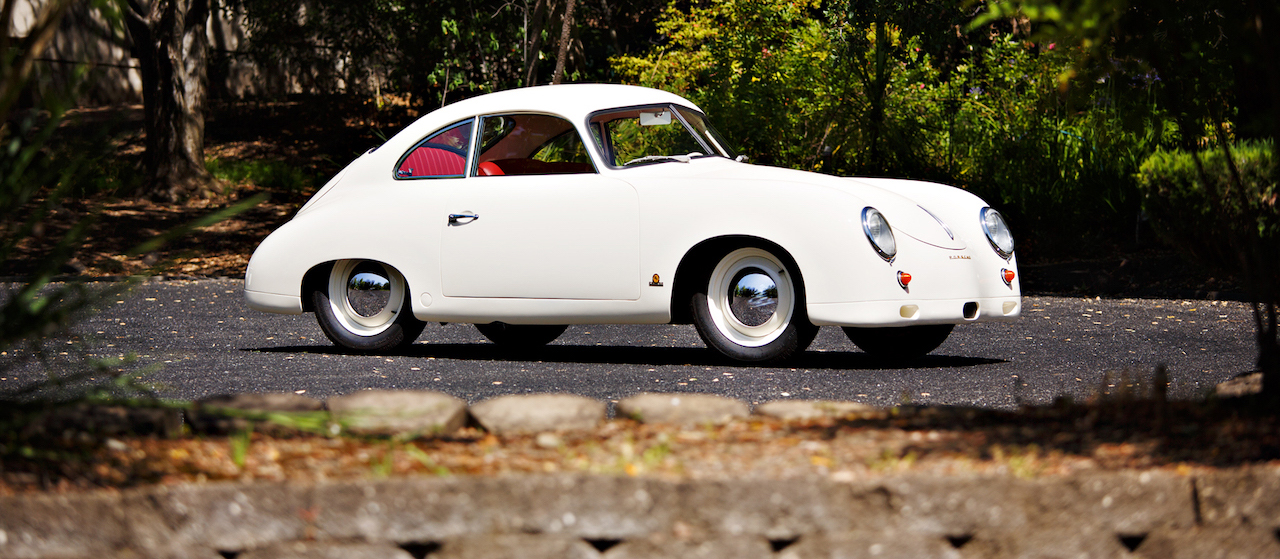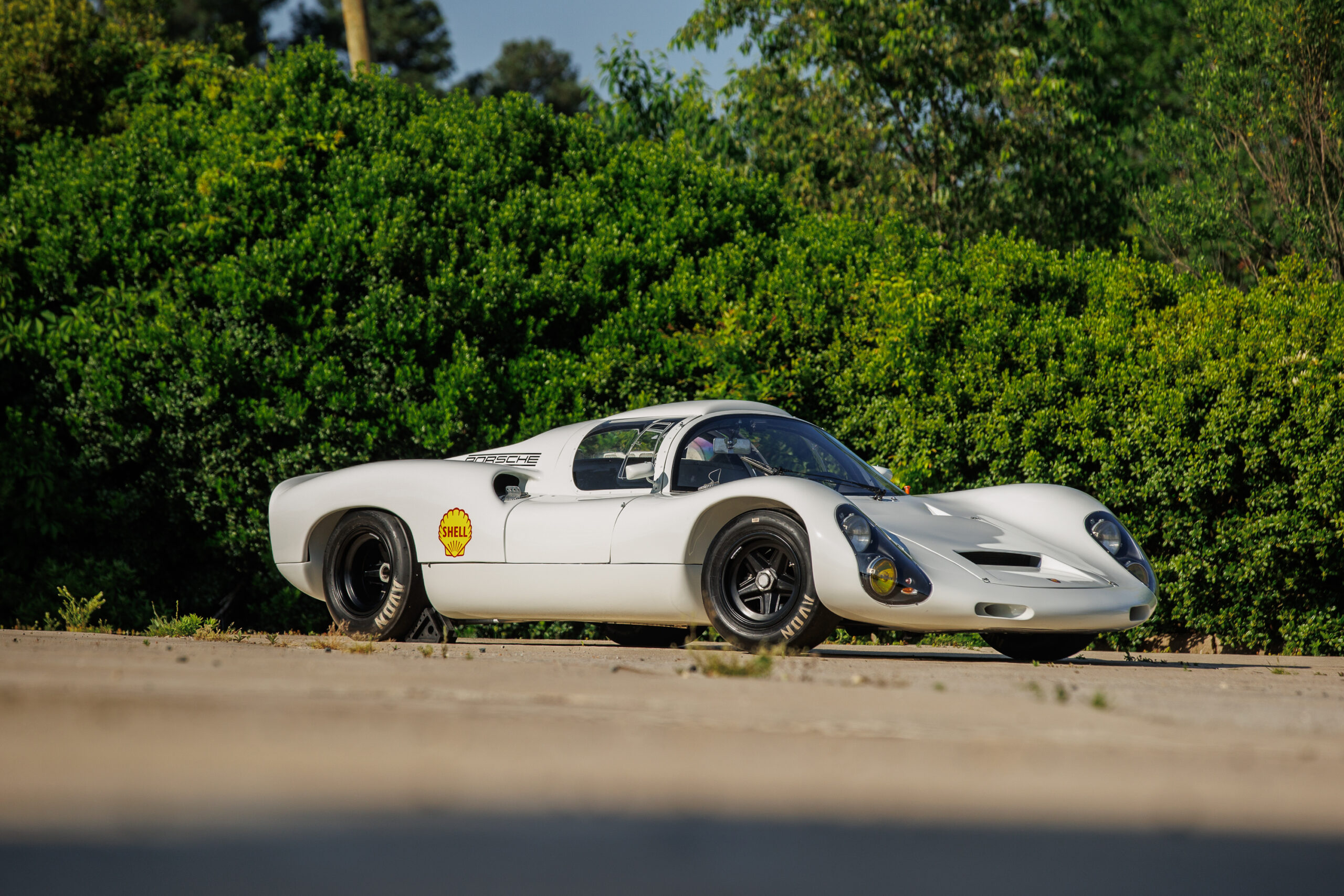With Monterey Car Week 2019 behind us we can all go about our normal routine and business. Per usual there were plenty of fireworks throughout the week, and plenty of opinionated articles written and released about the collector car market in general, the 1939 Type 64 drama, the demographics of buyers, etc. I’m going to steer clear of the popular headlines and attempt to cover what we experience on a day-to-day basis in today’s market climate. Perhaps this is not a true market analysis, as average cars aren’t really of interest to us, but more of why we focus on what we do.
Let’s cover some obvious points. I’ve been hearing a lot that the collector car market is “down” or “bad”, by folks in the industry and consumers both. People that follow this market range from a money standpoint to a simple love for cars and all understand there are different levels in this range. I think if you check with marque experts across the board you’ll find feedback that supports the theory that if you surround yourself with the best examples you’ll be fine. Hasn’t this always been the case? Doesn’t history repeat itself? Of course, I know “fine” is completely subjective; but to determine concrete definition we all must understand why we have cars. Strictly as investments? Many would tell you to go purchase real estate or play at 3/4 of a million USD or more. As a car to drive or grouping of vehicles that you love? Fantastic, go get your money’s worth. As a collection of your favorite marque perhaps with a theme in mind? Be thankful you can do so and enjoy your garage while sharing its contents with like-minded enthusiasts. Whether buying a fifty-thousand-dollar car or one at five million, stretch your budget (we all have them) as much as possible and buy the best available. After all, is there such thing as “losing” money if you’re buying what you like? If you’re fortunate enough to make money or break even in whichever market you sell can be a realistic goal. However, if you sell your car for less money than which you paid, does this mean the market sucks? Have we come into a world where we all think we have to make money on every car? We certainly understand no one wants to take a bath. But we emphasize this is and always will be an ebb and flow market. Sometimes it helps to view your automobiles as a portfolio, but regardless of how you explain or categorize it, buy what you like and enjoy the cars as you intended upon purchase. Markets are cyclical; this is no exception.
As we are Porsche eccentric, let’s focus on Ferry’s marque. We all know Porsches were largely unrecognized, at least by value looking back, when Ferrari and Mercedes led the way as collectibles. Then we experienced what I’ll call the Porsche boom that started in 2010-2015. We experienced certain models essentially doubling overnight in value, a constant squiggle on a line graph up and to the right. Common sense would tell anyone that inevitably this squiggle can’t always trend up and to the right; it doesn’t happen in any market place, and this is what we’ve seen over the last few years. A “correction,” if you will, is watching Porsche models across the board trade for less cash than they did, let’s say, 3-5 years ago. We had a peak; Porsches were getting the recognition they deserve and then we saw a drop in value. Currently we have something many are calling a plateau. This is not a bad thing, otherwise we’d be watching ’97 Turbo S models trade for $1.5 million, ’73 RS models go for over $2 million, and who knows what a 930 would trade for. We actually needed a bit of a reality check to bring Porsche numbers back within striking distance and to settle where we think the Porsche market is healthy. Perhaps this even is a good time to purchase that 356 or 911 you always wanted or the next one needed to fill that vacant parking spot in your collection. From a money stand point, who really knows? If we had that crystal ball and could predict these next years we’d all most likely be spending a lot of time on Wall Street. The big issue comes when folks don’t recognize a “correction” and get caught up in yesteryear. As in, not adjusting to the current climate we live in and freaking out, thinking the sky is falling. Ladies and gentlemen, it’s not falling, and I can tell you the Porsche brand, as a whole is just fine if you’re buying great examples. Vintage cars will be a viable market for many years to come; we’re far, far, far away from an autonomous life. The Point is this is not a market to sit at your computer and overanalyze. If you’re afraid of “losing” cash and not using your Porsche, don’t buy in or don’t sell in this climate. If you need to liquidate, it happens, but be thankful you have assets you can turn into capital and understand your car might not be worth what you paid a few years ago. Sure, it helps to look at various data points and to make strategic moves buying and selling but remember, this is a fun market with tangible objects we all love. You can actually use your assets, so go use them and enjoy what this hobby is all about.
Vintage car auctions. Those of you who have been doing this a long time and frequent most all auction events, or at least the ones we deem as the big ones, know it is not possible for these weekends to be the barometer of the market. Perhaps they serve as a good starting point and one data point, but not knowing or having access to the privateer numbers means you cannot get a fair and accurate assessment. Certainly there is a time and place for auctions and they can be a fun atmosphere to be a part of. But there are a lot of variables to look at. Numbers can go a bit askew when cars sell for less or more than estimated. (Estimates! Don’t get me started.) Just because someone was lucky and got a “deal” or someone else “overpaid” for what they really wanted doesn’t set the bar within each respective model designation after one weekend worth of results. There’s another point to recognize as the popularity of auctions has risen – there are simply too many of them. Of course, numbers are going to be down when we start looking at sheer numbers and somewhat of a quantity over quality approach. The percentages of sales have no choice but to be lower. I surely hope our big three auction companies aren’t aspiring to follow the Barrett or Mecum platforms. There is a time and place and I’m not saying there is anything wrong with any of these successful companies; after all they always win. There are also some great opportunities at auction. It’s just apparent that the pool of top tier of vintage cars is only so big and when we flood the market with auctions the cars can only be so good. Inevitably this can lead to consumer dissatisfaction, affecting buyers in the room and collectors wanting to take part. As a mentor and well-respected person in this industry once said, “Great cars don’t have to go to auction”.
If you have the time and don’t desire to be in the limelight, the best-of-the-best do better selling in the private sector. Why is this? Because most collectors don’t do a lot at auction and have a connected marque expert in their corner educating them in order to strategically help build a great grouping of cars. I headed west to Monterey this year to inspect fifteen Porsches on the block in each house for various clients. I will tell you after laying eyes on the cars, we were only interested in three for our clients. Of course, we tend to be very thorough when inspecting cars, but this diligence (w
hether it is us, another industry leader, or yourself) is what ensures getting your a great car not a good one. On the other hand, this means you might be able to hammer a great purchase, but you better know what you’re looking at and understand the auction room and how it actually works. Become a savvy car enthusiast.
In summary, have we come into a climate in which, when we thinking about cars, is money the first thing we think? Have we gotten away from what this hobby is all about? Are the times in which we live – and are other global markets – affecting our hobby more than ever? Are we more focused on generational changes and grown worried about whose hands this hobby is in now and next year? Have we let greed and all-time high values color our mindsets moving forward? All these are open-ended questions to which no one has the exact answer. But they can perhaps be interesting to think about when playing cars. I think the only safe play is to surround yourself with the best examples; don’t settle for anything less than great. As history repeats itself and markets cycle, there always will be people that are willing to spend significant sums of hard-earned money for the best. At the end of the day, if you’re fortunate enough to own vintage cars, congratulations and enjoy the fruits of your labor!




